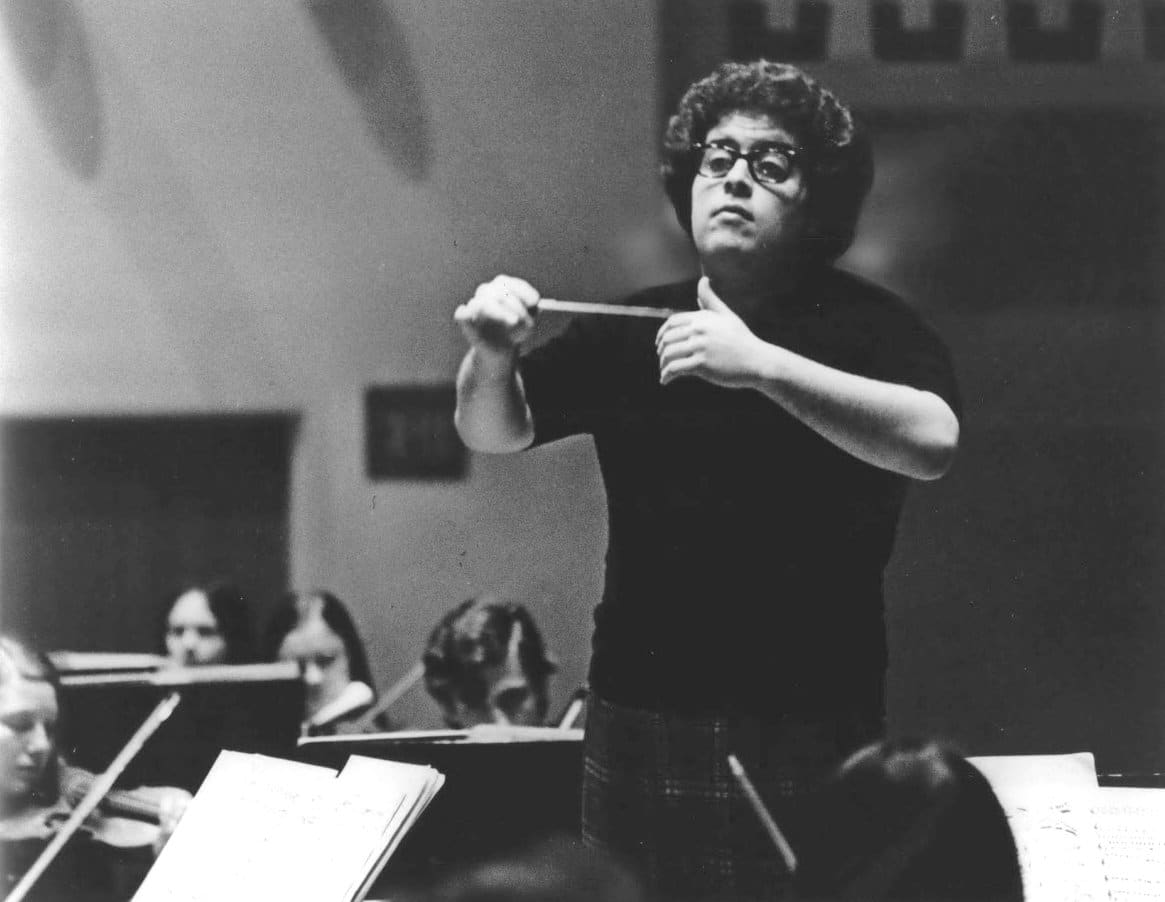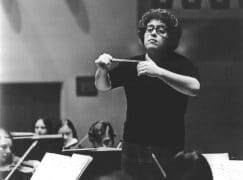An American maestro remembers Jimmy Levine
mainLeonard Slatkin has, at our request, written this fond memoir of an esteemed colleague:
In Memoriam James Levine
Aspen, Colorado. Summer 1964
Across from the Mountain Chalet, the domicile that housed students at the Aspen Music School, there is a park. Every Sunday, just after the dress rehearsal for the afternoon concert, a group of musicians would gather for the weekly softball game. Those not physically participating would sit on a little hill, watching the proceedings and hoping no one would break anything.
Among these spectators was the ever-young Jimmy Levine. I have no idea if he had any interest in the sport, but he certainly loved the attention paid to him as well as the banter and joke telling. All of us had a sort of reverence for him, as he was the wunderkind in so many arenas. At one moment, he might be playing sonatas with Lynn Harrell, at another leading an incandescent performance of Ariadne auf Naxos, as well as page turning for his piano teacher, Rosina Lhevinne, as she made her way through a Mozart concerto.
Jimmy – always that and never James – stood apart from all of us. I always had the feeling, at least back then, that he desperately wanted to be part of the gang. It was not enough to be admired, he needed to be accepted. But none of us could even begin to compete with that incredible depth of knowledge, flawless technique and uncanny ability to know what was musically right.
Watching him work with mezzo-soprano Jennie Tourel was a master class in how a kid barely in his twenties, could teach the seasoned and tough-minded pro a few tricks. And he did it with the gentlest of words and actions. “Why don’t you just take a breath there?” Jimmy would ask. “ You knew Poulenc. What did he have to say about this phrase?” “ That is just a little bit under pitch, Jeannie. Think of it as an E Sharp rather than an F Flat.”
Those were very special days. We all knew what Jimmy would accomplish. It was no surprise that he led the Metropolitan Opera for all those years. No surprise that every singer wanted to work with him. No surprise that he always got what he wanted from his musicians in the pit and on stage.
Jimmy was the consummate musician, perhaps to a fault. He jettisoned almost everything to pursue what he believed was perfection, knowing full well that it could never be achieved. I often wondered what he wanted from his life other than to make music and how awful it must have been when various disabilities prevented him from doing his job at 100%.
Back at the ballfield, this incredibly gifted human was just another kid hanging around. Maybe he secretly wanted to play second base. No, if anything Jimmy would have been the pitcher, controlling the flow of the game. That’s wrong too. Manager might have been better suited to his temperament, but there is no way he would have argued with the umpires. So I guess it was just on the sidelines for him, but taking it all in, wanting to be a part of the game.
It all worked out. Eventually, Jimmy would own the team.







Comments